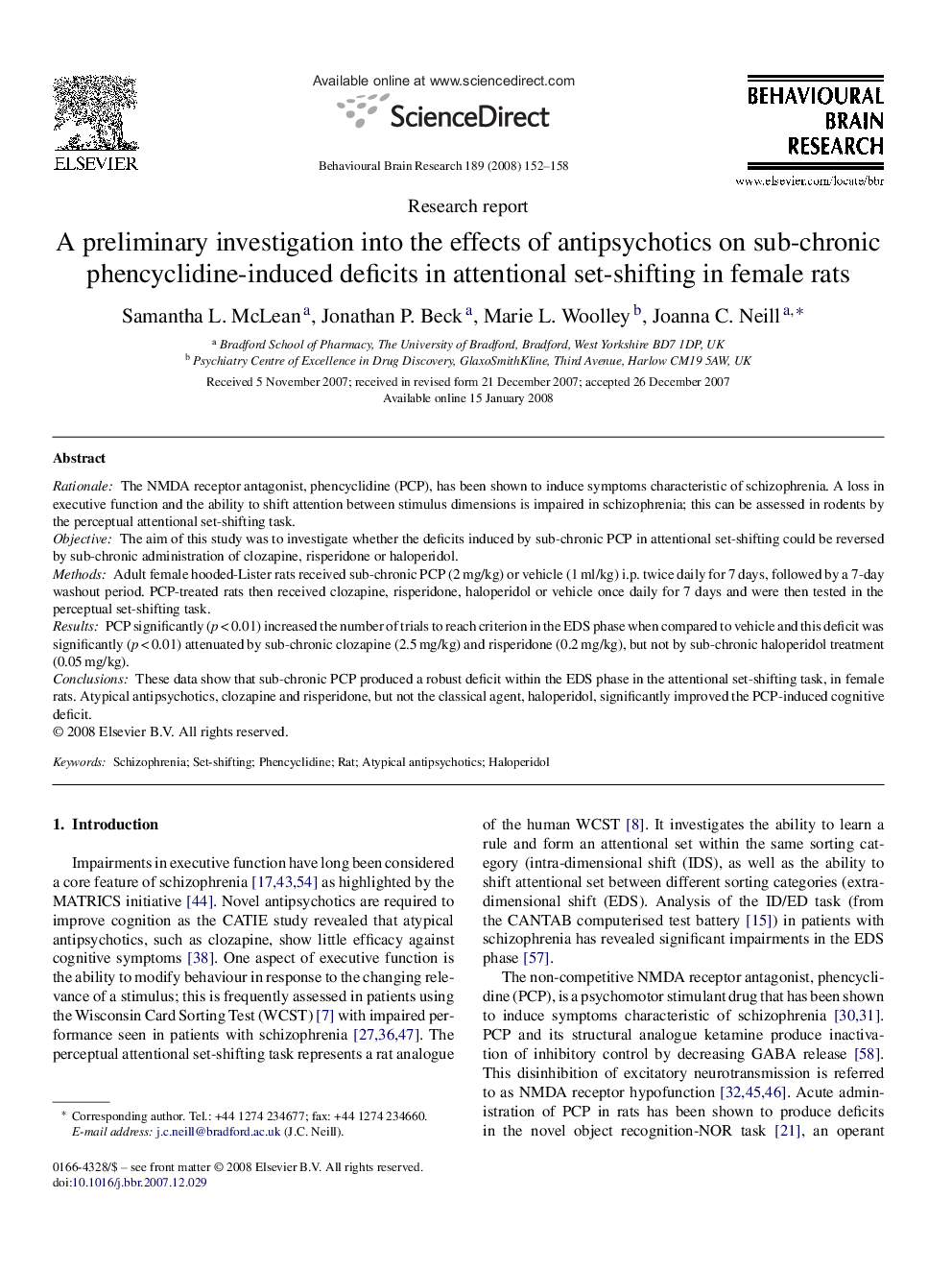| Article ID | Journal | Published Year | Pages | File Type |
|---|---|---|---|---|
| 4315288 | Behavioural Brain Research | 2008 | 7 Pages |
RationaleThe NMDA receptor antagonist, phencyclidine (PCP), has been shown to induce symptoms characteristic of schizophrenia. A loss in executive function and the ability to shift attention between stimulus dimensions is impaired in schizophrenia; this can be assessed in rodents by the perceptual attentional set-shifting task.ObjectiveThe aim of this study was to investigate whether the deficits induced by sub-chronic PCP in attentional set-shifting could be reversed by sub-chronic administration of clozapine, risperidone or haloperidol.MethodsAdult female hooded-Lister rats received sub-chronic PCP (2 mg/kg) or vehicle (1 ml/kg) i.p. twice daily for 7 days, followed by a 7-day washout period. PCP-treated rats then received clozapine, risperidone, haloperidol or vehicle once daily for 7 days and were then tested in the perceptual set-shifting task.ResultsPCP significantly (p < 0.01) increased the number of trials to reach criterion in the EDS phase when compared to vehicle and this deficit was significantly (p < 0.01) attenuated by sub-chronic clozapine (2.5 mg/kg) and risperidone (0.2 mg/kg), but not by sub-chronic haloperidol treatment (0.05 mg/kg).ConclusionsThese data show that sub-chronic PCP produced a robust deficit within the EDS phase in the attentional set-shifting task, in female rats. Atypical antipsychotics, clozapine and risperidone, but not the classical agent, haloperidol, significantly improved the PCP-induced cognitive deficit.
